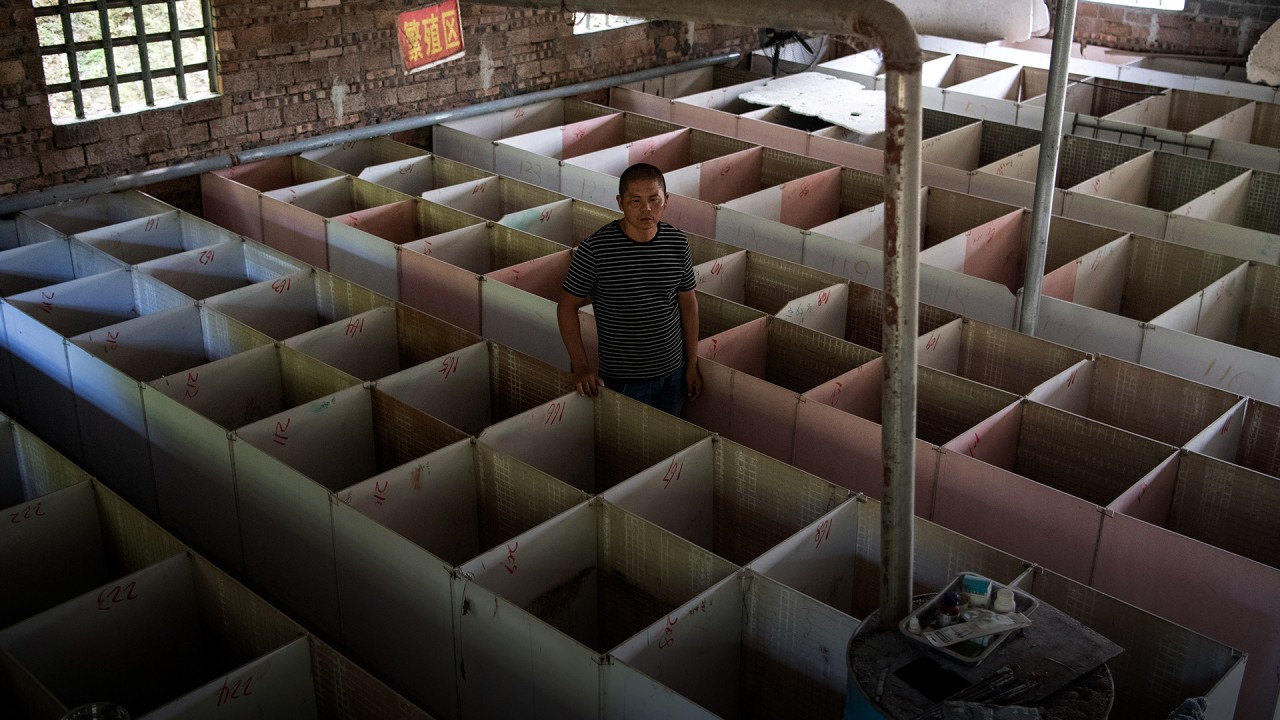
Covid-19 pandemic spurs 30 per cent to reduce or stop consuming wildlife, poll finds
- Wild animals seen as main source of coronavirus outbreak by nearly 60 per cent of respondents in China, Myanmar, Thailand, Vietnam and the US
- More than 6,600 people were asked about their attitudes to the wildlife trade, government action, and future pandemics
And almost 60 per cent believed wildlife was the main source of the coronavirus outbreak.
The survey of more than 6,600 people in China, Myanmar, Thailand, Vietnam and the United States looked at attitudes towards the wildlife trade, government action on it, and future pandemics.
“We think it is critical at this juncture to think how we can address the causes of the pandemic and not just how we react to them,” said WWF communications manager Mia Signs.
The question of how future pandemics can be prevented will be a key focus of the WHA, and managing the relationship between humans and nature to ensure animal and human health has become a priority for the WHO. It said on Thursday it had formed an expert panel called One Health with three other global bodies to advise on the risk of diseases spreading from animals to humans.
In China, where the first coronavirus cases were reported, almost half of the people surveyed said they believed wildlife was the primary source of the outbreak – the highest proportion across the five countries. In total, 76 per cent considered it to be either the primary or secondary source.
Out of the almost 2,000 respondents from China, 28 per cent said they had consumed less wildlife or stopped altogether because of the pandemic, while 67 per cent were not consuming wildlife products at all before the outbreak. More than 90 per cent said they would be unlikely to buy wildlife products in the future.
“In response to the Covid-19 pandemic, the political will in China has never been stronger across the multiple levels of government. Within a few months, all the 31 provinces [and regions] had published their local ban on wildlife farming and consumption,” said Zhou Fei, chief programme officer of WWF China.
“The pandemic sent a real shock to the public in China. Never has there been so much awareness of the link between the pandemic and the consumption of wildlife.”

02:46
Chinese rats, cobra farmers face debt and poverty after wildlife ban

02:25
Pangolins continue to face threat of extinction despite wildlife trade bans
A small number of the survey respondents in China, 220, said that they or someone they knew had bought wildlife products in the past year. The main reason was buying an exotic pet, at 26 per cent, followed by purchasing supplements to improve health, at 21 per cent. The survey found the top reason for choosing a supplement derived from wildlife over an alternative product was because they considered it more effective in improving health.
“The bans alone will not stop the illegal wildlife trade if the enforcement of the regulation is not in place and the demand persists,” Zhou said. “This public health crisis must act as a wake-up call for the need to end the medicinal use of endangered wildlife and their parts for food consumption and for perceived medicinal value.”

